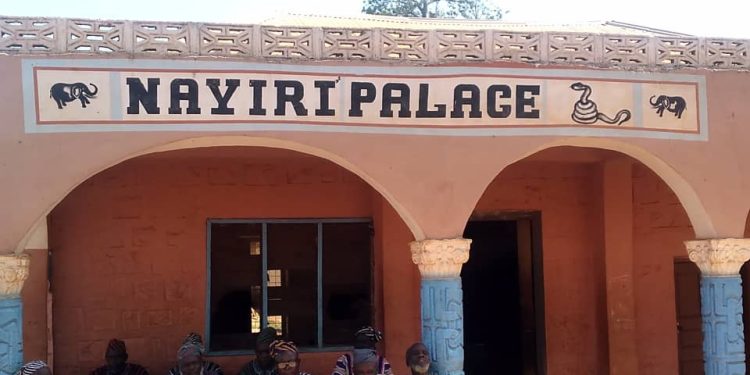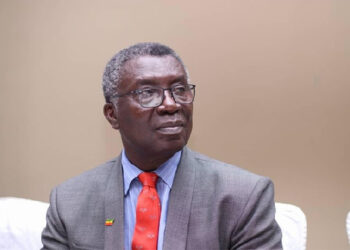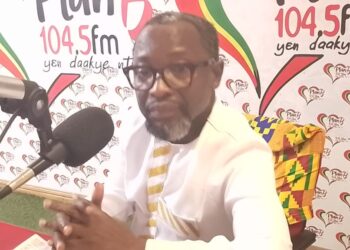The entire residents of Mamprugu in Ghana are calling on the government through the Attorney General to consider revisiting the 1983 National House of Chiefs ruling on the Bawku skin dispute. They are of the opinion that this ruling by the legally mandated body to deal with chieftaincy matters provides much clarity to the Bawku chieftaincy dispute. They further urged Government to take time and look at the supreme court ruling in 2003 and they will realize that the apex court never made pronouncement on who is rightful owner of the Bawku skin.
In a response to the happenings in Bawku and its environs, the Mamprusis in an article which has been echoed in several of their press release and media publications have chronicled the events and what they described as the true picture of Bawku Chieftaincy issues and wants the government to open up the case once and for all for war and unrest to be defeated by eternal peace.
Below is their article to the government:
RE: BAWKU CHIEFTAINCY CHALLENGES. THE SUPREME COURT NEVER RULED AGAINST MAMPRUSIS
On 27 December 2021, HE President Addo-Dankwa Akuffo-Addo caused the arrest of the Nayiri’s representative and other Mamprusi elders, including a pregnant lady, for taking part in rituals performed in Bawku a day earlier to bring closure to the reign of the late 14th Bawkunaba, Adam Zangbeo. An offer to escort them through hostile Kusasi areas was turned into an arrest. On 29 December 2021, the President instructed the Minister for Chieftaincy, Hon Kojo Kum (MP), to urgently release a statement on the occasion of the celebration of the Samanpiid Festival of the Kusasis held in Bawku and with him as Guest of Honour.
The President asked the Minister for Chieftaincy to “draw urgently the attention of all stakeholders in the Bawku impasse to desist from actions and pronouncements that can further escalate tensions and violence in the area”. The writer of this article can prove that the key protagonists in the creation and perpetuation of the Bawku conflict are the government and politicians. Otherwise, Mamprusis and Kusasis are born allies, and left alone they will live in peace as they had lived in their entire pre-colonial existence. This conflict is rightly described as a pseudo-ethnopolitical war. Politics disrupted over two centuries of Mamprusi rule in Bawku and since then the skin has become a political ball game. It can be proven that the actions and pronouncements of governments and politicians are principally responsible for this senseless conflict and the solution rests in exposing and dealing with these. The challenge is for the current government to treat this case like the December 2012 election petition so that the whole world can see the truth for themselves. Over to you HE The President!
The Minister claimed thus: “claims that Bawku does not have an overlord and attempts to install a new Bawkunaba run contrary to the already determined position of the Supreme Court on the matter. The status of the Paramount Chief of Bawku has been settled by the Supreme Court of Ghana in the celebrated case in April 2003”. THERE WAS NO SUCH RULING BY THE SUPREME COURT!!! This is a direct attack on the Mamprusis in support of the claims by Kusasis and thus lacks the requisite neutrality! Besides, the position of the President, which he expressed through the Minister, contravenes Article 270 of the 1992 Constitution.
Mamprusis respect the Nayiri as the Overlord of the Bawku Traditional Area and have both the historical and legal backing to prove it to the world if given the opportunity to do so. To change this fact of Mamprusi history will require the proponents of this chieftaincy fraud to change the entire history of Ghana and West Africa to try to accommodate their fabrications; which is obviously unachievable. The histories of almost all the ethnic groups are indisputably tied to this case; except that of the Mande speaking groups and a few others. Mamprusis again challenge the government to give them the opportunity to prove to Ghanaians the real Overlord of the Bawku Traditional Area to help resolve this “impasse”.
It is a fact that the Judicial Committee of the National House of Chiefs ruled on 20 May 1983 that Abugurago Azoka was “A COMMONER AND COULD THEREFORE NOT OCCUPY THE BAWKU SKIN”. This government would do a great service to truth and the good people of the Bawku Traditional Area if it explains to Ghanaians how Abugurago, a “COMMONER”, established a chieftaincy legacy for his son to become the Paramount Chief of Bawku. Mamprusis further challenge the government to allow both parties to prove to Ghanaians that the true royals, as well as the commoners, are in the traditional area to settle the “impasse”.
The Mamprusis do not want to install a new Bawkunaba per se but want to exercise their right under the Constitution to appoint the 15th Bawkunaba as successor to the 14th Bawkunaba who was the Vice President of the then Upper Regional House of Chiefs at the time of his death; and whose Regent is acknowledged and respected by all governments to date. This installation of the 15th Bawkunaba has been pending since 1981, not for lack of legitimacy but because successive governments from then (Liman) to date have interfered with the judgment of the National House of Chiefs in the real “celebrated” case in 1983.
In the absence of any legitimate instrument to back a “commoner” as Bawkunaba, PNDCL 75 was promulgated on 24 February 1984 and imposed on the National House of Chiefs. Aninchema, the son of Abugurago, was appointed as Government chief of Bawku on 24th April 1984. He ruled as a usurper until the current President and other well-meaning Ghanaians fought hard for the return to constitutional rule; not only for political power but also for democracy for all. As required under constitutional rule, all dictatorial laws, including PNDCL 75, were repealed among others. Also repealed was PNDCL 98, which specifically prohibited the Kusasi Youth Association and any other ethnic or tribal association in the district; as well as PNDCL 99, the Bawku Lands (vesting) law, which vested all lands in the district in the PNDC to be administered on behalf of the government by the Administrator of Stool Lands. The bonding of selected opinion leaders from both sides was also annulled. Political parties could now be formed, the rule of law was restored, human rights were respected, confiscated items were returned to their owners, press freedom was restored, military brutalities outlawed, and many more.
Although the Mamprusis were directly served with PNDCL 75, which imposed imprisonment for a term not less than three years without the option of a fine, they were not notified about the repeal; which would have been appropriate even if that was not obligatory. However, Kusasi appointees in the PNDC were either privy to or probably contributed to the repeal process. As such, the Kusasi Youth Association quickly re-organized and resumed their land-seizure and war agenda which hitherto were outlawed by PNDCL 98, PNDCL 99, and Rawlings’ bond. Meanwhile, PNDCL 75 remained practically effective and protected by the government; thus rendering its repeal useless.
Unaware of the repeal, Mamprusis decided to challenge the existence of PNDCL 75 because they considered, and rightly so, is unconstitutional and dictatorial. They thus contracted a reputable Constitutional law firm, Akufo-Addo, Prempeh & CO to have this law repealed. As this was a constitutional matter, the case was filed at the Supreme Court. Counsel for the Kusasis was Mr. Martin Amidu who is a veteran lawyer and PNDC/NDC big-gun. Martin Amidu informed the court that the said PNDCL 75 had long been repealed and based on which counsel for the Mamprusis sought leave to wholly discontinue his action against the Kusasis with liberty to apply. This was granted but without liberty to apply under PNDCL 75 and articles 270 and 277 of the 1992 constitution. A cost of ten (10,000.000) million old cedis to the plaintiff. Surely, the Supreme Court was right not to tolerate this anymore from Counsel for the Mamprusis.
In what way did the discontinuation of the case by the Mamprusis amount to a judgment which conferred constitutional status on PNDCL 75 and thus render the product of a constitutionally declared commoner a chief? Has the Supreme Court taken over the role of the Judicial Committee of the National House of Chiefs on chieftaincy matters under the 4th Republic Constitution or is it that once a chieftaincy issue bothering on the constitution is brought before the Supreme Court, the National House of Chiefs is barred from handling the other aspects of it. Surely, the cost implications of the discontinuation of the case did not amount to a judgment that declared the commoner a chief. Aninchema Abugurago lost the legal backing as a usurper after the repeal of PNDCL 75 and the discontinuation of the case at the Supreme Court did not change that status. The government should rather apologise to Mamprusi Original chiefs for overseeing the prolongation of his illegitimacy instead of abusing power to legitimize it.
If there was any pick and choose in the Bawku chieftaincy affair, it surely was not the interpretation of the clear issues that happened at the Supreme Court but the attempts by the government to re-impose the repealed PNDCL 75 on Mamprusis in Bawku. If indeed, the laws of the country are meant to be complied with and not subject to the whims and caprices of politicians, the government should open this case up for public hearing as they did for the December 2012 election petition. Mamprusis request all stakeholders in the Bawku Inter-Ethnic Peace process to mount pressure on the government to heed to this request if they really want a permanent solution to the conflict.
The NPP government requires far more than it has done so far to prove the legitimacy of the repealed PNDCL 75 Government Chiefs. To base national policies on such skewed decisions to maintain the usurpation of Naa Gbewaa’s kingdom is tantamount to attempts to destroy the very legacy that formed the foundation stone on which the UP and the ruling NPP were built in hard times. Has the NPP soon forgotten or is it that the agenda has changed in good times? Authorizing the security agencies “to take all necessary steps to ensure that law and order are fully enforced” and any persons who are in breach of the peace are brought to book” has already brought the cargo of Mamprusis, mostly NPP polling agents, to the morgue. These are not from the war front but through the enforcement of the so-called peace and order in or close to their homes as ordered.
Based on the government’s above position on the law that has legitimized the position of the erstwhile PNDCL 75 Government Chiefs to rule their Mamprusi hosts and its resolve to ensure that they are not inhibited from acting in those capacities; we can predict a repeat of what prompted nobody but Rawlings to impose PNDCL 98 to outlaw and curb the atrocities of the Kusasi Youth Association, PNDCL 99 to stop the wanton seizure of land as well as the Bonding of opinion leaders to stop fighting which continued to be planned underground. Not only has the constitution rendered it illegal to reproduce these measures in the 4th Republic, but the NPP also lacks the power and boldness of Rawlings to stop the KYA impunity. Mamprusis are practically under a siege which none of those calling the shots will tolerate in their homelands. It is as though the constitution has been set aside or varied to include PNDCL 75! This vicious cycle will teach the NPP a bitter lesson it will never forget. What Kufour experienced by way of the single-digit votes he received at Aninchema’s compound after a heavy investment was only comedy!
When a log lies long in a pond it does not become a crocodile. Similarly, having Aninchema Abugurago’s name on the list of chiefs he ought not to be on cannot change him into a legitimate chief. It is on record that the Upper Regional House of Chiefs rejected Aninchema as Bawkunaba and a member of the House until it finally yielded to pressure from the government, as is presently being done. In the quarterly report of the House dated 24th July 1985, a year and a quarter after he was appointed Government chief, the House cited the Bawku chieftaincy problem as one of the issues threatening the peace and unity of the people. The House categorically stated that the “Bawku chieftaincy affair was fraught with politics and needs a fearless and judicial solution to it. It is our view that the problem should be referred to the normal courts for adjudication and amicable solution”. The House added that “It is our fearless suggestion that the gazetting of the Bawku area enskinned chiefs under PNDCL75 be looked into and the Bawku Traditional Council properly constituted thereof”. Sadly, the same mistake of avoiding the legal process to shield Kusasi usurpers is repeated by the proponents of freedom and justice in the country.
These bold pronouncements of the Regional House of Chiefs, during the heat of the revolution, were ignored in much the same way as the ruling of the wise men at the Judicial Committee of the National House of Chiefs. On 5th September 1986, Rawlings showed the National House of Chiefs where power laid by elevating Aninchema to the status of a paramount chief in the Local Government Bulletin. This was how Aninchema came under paramountcy. Everything was cooked for him by the government! Complete round pegs forced into square holes through the defiance of all the state institutions that address chieftaincy issues. Yet, the NPP government sees sanity in this rot.
The pressure was also put on the registrar of the Regional House of Chiefs to change the name of the Bawku Traditional Council to Kusasi Traditional Council. The registrar of the Bawku Traditional Council had already effected this fraud and started using it in official correspondences. The matter was resolved by the insistence of Legal Counsel for the Regional House of Chiefs that the correct name for the traditional council was Bawku Traditional Council and not Kusasi Traditional Council. He explained that this was proper on technical, legal as well as political grounds since Kusasi Traditional Council would omit other important ethnic groups in the area. (UG-66/SF.35/43/27.4.1984). Under the NDC government, Rawlings tactically handled a mess created by the Avoka-led Kusasi Youth Association to impose pro-Kusasi names on Bawku. Sadly, an NPP government has damned all procedures and the sensitivities of the other ethnic groups in the area to plant the biggest monster called Kusaug in the area. The word Kusaug was only discovered in more recent times and added to Kusasi vocabulary. Time will surely take the NPP to the destination of its exceptional bravery. Ayekoo!!!
The NPP has exhibited the very dictatorial tactics the Executive wing of other regimes such as the CPP, PNP, and PNDC used to oppress and suppress Mamprusis since independence and which the forebears of the UP had jointly resisted under a united front. The scars Mamprusis sustained from the political battles of the UP fraternity to get the NPP to power cannot be said to be less than that of any group in the country. Yakubu Salifu, the blind old man and brother of Imoro Salifu, gave the President detailed accounts of this struggle which brought him close to members of the President’s family. He and many unsung Mamprusi UP heroes sacrificed for the UP and never got or requested any personal gain. That a detention camp was built in Bawku purposely for Mamprusis should remind the NPP of the extent and severity of the other forms of oppression and suppression Mamprusis endured in the course of UP politics. The NPP cannot pretend to have so soon forgotten the huge sacrifices of UP stalwarts like Imoro Salifu, Adam Amandi, Idana Asigri, Gumah Sandow, and the Naa Sheriga, the father of the present Nayiri, whose hand was said to be on the symbol of the Northern Peoples Party.
As Mamprusis continue to be in a state of disbelief as we bury our dead, wallow in police cells without bail, and wait for the NPP persecutions to further unfold, we still try to treat the action of the President as an internal UP affair and exercise maximum restraint for the time being. We have seen each other’s nakedness before and will both be losers if we allow this intra-UP conflict to degenerate. The onus lies more with the government who started it and has the means to abuse the might of its regime to further hurt the Mamprusis. Otherwise, it can only get nastier and last into the future. Note that the unusual silence from the camp of the traditional opponents of the UP fraternity may be a serious warning that the government is treading on dangerous grounds. HE The President, a permanent solution rests with the National House of Chiefs and not the Executive wing of government!










Discussion about this post